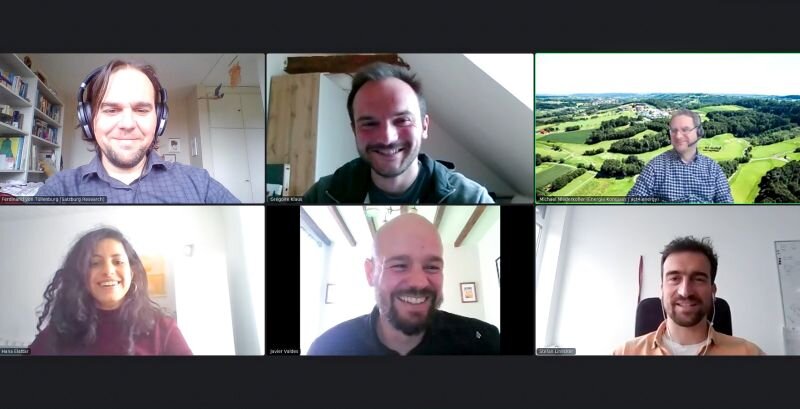
ChrossChargePoint
A multi-talent for electromobility
20.5.2021 | THD-Pressestelle
In a new project, researchers at the Deggendorf Institute of Technology (DIT) have been pursuing the idea of equipping charging points for electronic vehicles with multi-functional features and generating added value for users, cities, municipalities and operators. Classic charging stations for electronic cars are now often seen in public areas/ parking lots. They are accessible to everyone. Simply plug in your car, pay and charge or refuel. Theoretically, however, charging points could be equipped with many more functions than just charging. This is being investigated in the project entitled “CrossChargePoint”, which is assigned to the Technology Campus Freyung.
For example, additional energy storage facilities could be created where charging points are installed. This would result in many advantages: Fluctuating demands on the local power grid could be better absorbed. The rapid and simultaneous charging of several electronic vehicles is possible. Or the energy is converted by electrolysis and power-to-gas so that gas- or hydrogen-powered cars can also be refuelled. In the “CrossChargePoint” project, the special requirements of different regions due to different geographical, climatic and economic conditions are taken into account. This and the development of a prototype that should be applicable on a larger scale in the future with only a few adjustments is the main challenge of the project. Ten partners from four different countries have joined forces for the project. Experts from Israel, Austria, Germany and Switzerland, from various companies and research institutes will work together over the next three years to develop this electromobility project. The team from Freyung is responsible for developing the simulation and planning software. For the planning and operation of a CrossChargePoint, conditions are collected and integrated into the simulation and optimisation tool, which specifies the optimal locations, sizes and technologies – such as an energy management system – for new CrossChargePoints by entering the required data. A special focus is also on developing a plan to enable easy energy transfer to other regions with different economic, infrastructural and geographical conditions. For the team at the Technology Campus Freyung, this project led by Professor Dr Javier Valdes offers a great opportunity to advance topics that have already been worked on in the transport and energy sectors in recent years. For this purpose, Professor Dr Wolfgang Dorner, the head of the Technology Campus Freyung has built up a team with extensive experience through the development of projects such as Increase, Cross Energy or e-Road. The project is funded by the Horizon 2020 programme of the European Union.
Bild (TC Freyung): Working together on the CrossChargePoint project: Ferdinand von Tüllenburg (Salzburg Research Forschungsgesellschaft), Grégoire Klaus (TC Freyung), Michael Niederkofler (Energie Kompass), Hana Elatter (TC Freyung), Javier Valdes (TC Freyung), Stefan Linecker (Salzburg Research Forschungsgesellschaft).